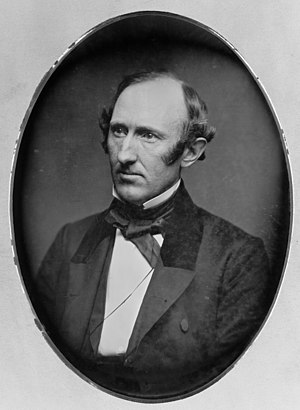Wendell Phillips (1811–1884) was an American abolitionist and advocate for the rights of women and Native Americans. A Boston native, educated at Harvard Law School, he gave up a brief career as a lawyer to become an orator in the anti-slavery movement. He frequently spoke at meetings of the American Anti-Slavery Society and earned the moniker of "abolition's golden trumpet". As an adherent of the free-produce movement, he condemned the purchase of cane sugar and clothing made of cotton, since both were produced by slave labor. Phillips was also an early advocate for women's rights. In the July 3, 1846, issue of The Liberator, he called for securing women's rights to their property and earnings, as well as women's suffrage. He also argued for the creation of a cabinet-level position to secure Native American civil rights, including citizenship, that he believed were granted to them by the Fifteenth Amendment.
This picture is a daguerreotype of Phillips in his forties, taken by early American photographer Mathew Brady sometime between 1853 and 1860. The photograph is in the collection of the Library of Congress in Washington, D.C.Photograph credit: Mathew Brady; restored by Yann Forget
